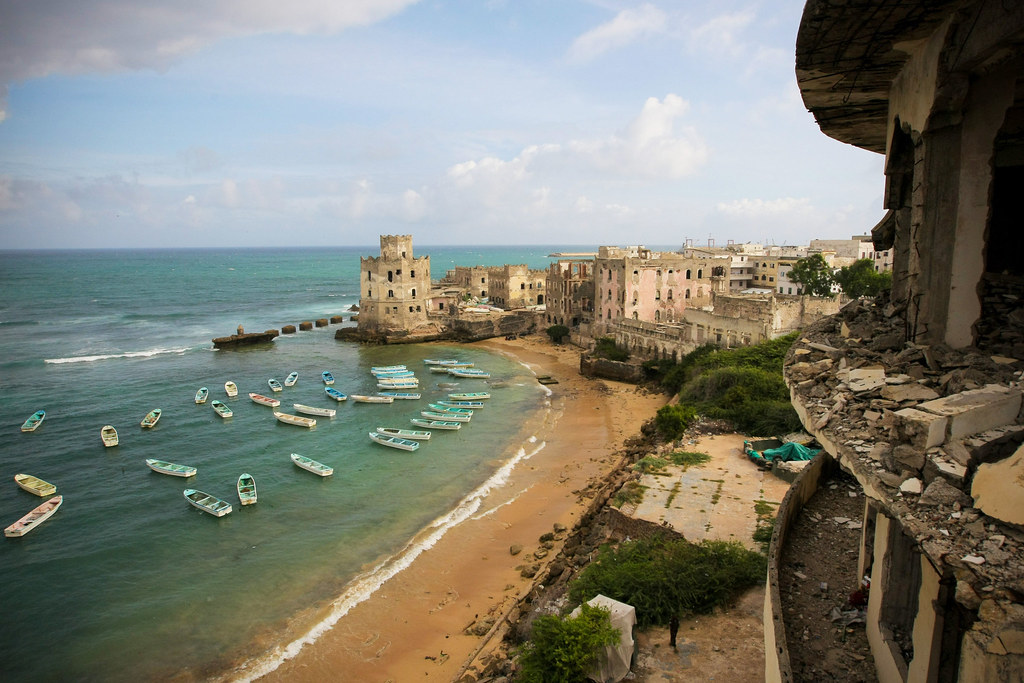Editor’s Note: This piece is brought to you by Vincenz Bill, a trainee at the Foreign Affairs Committee of the European Parliament with the Renew Europe Group. His work focuses on issues related to EU accession countries in Eastern Europe and relations between the EU and North African/Sahel countries, building on the focus of his Master’s in Strategic Studies at the University of St Andrews.
The War in the Democratic Republic of Congo (DRC): Continuous Collapse
In the last Dispatch from May, I noted the hopeful possibility of a ceasefire in this conflict that has continued to ravage the local populations in the Kivu region of the DRC and beyond, causing a humanitarian crisis that international actors and the DRC government have struggled to control. Since then, unfortunately, things have only deteriorated:
Since mid-May 2025, the M23 rebel movement has intensified its campaign in eastern DRC, focusing on Rutshuru’s Bwito chiefdom in North Kivu. Analysts note a shift to sustained, coordinated operations aimed at clearing pro-government militias (including groups linked to the FDLR, a Rwandan rebel group operating in the DRC since the 2000s ), securing logistics routes, and consolidating territorial control. M23 has moved beyond rapid offensives to establishing de facto governance in captured areas—installing local administrators and police, collecting taxes, and attempting to manage basic services. This has disrupted formal banking and commerce sectors, which face pressure from the DRC government, while increasing local economic stress through new levies.
The humanitarian crisis has escalated sharply. Between 9–21 July, the UN human-rights office documented at least 319 civilians killed in North Kivu, describing these attacks as among the worst since M23’s resurgence. Fighting and bombardments have forced hundreds of thousands into displacement camps, notably around Goma, with several incidents of shelling and gunfire near populated areas. Human-rights groups accuse both M23 and pro-government forces of grave abuses, including arbitrary killings, sexual violence, forced recruitment, and mass displacement.
Diplomatic tracks have struggled to match the pace of fighting. On 19 July, Qatar hosted talks resulting in a declaration of principles intended to pave the way for a negotiated settlement. The agreement included commitments to work toward a permanent ceasefire, but implementation has faltered. M23 leaders complain Kinshasa has not met preconditions—such as releasing prisoners—and that they were excluded from some Doha sessions. This exclusion and mutual distrust have undermined momentum.
Meanwhile, Rwanda faces persistent accusations from the DRC, the UN, and NGOs of providing military support to M23, allegations Kigali denies. International actors, including the EU, US, and African Union, have issued repeated calls for de-escalation, civilian protection, and renewed negotiations. However, with M23 entrenched in several urban centres, Kinshasa facing internal political pressures, and mediation efforts stalling, the situation remains volatile.
At this moment, we are just about as far away from a sustainable truce as we were 4 months ago. If anything, the erosion of trust and failure to implement the already tenuous agreements have created a space where political solutions are even more difficult to achieve than before.
2025: A transformative year in Namibia
On a more hopeful note, Namibia, a sparsely populated country on the south-western coast of Africa, experienced a series of historic political developments: On 21 March, Netumbo Nandi-Ndaitwah was inaugurated as the country’s first female president, succeeding Nangolo Mbumba. The ceremony coincided with Namibia’s 35th independence anniversary and was followed by the election of Saara Kuugongelwa-Amadhila as the first female Speaker of the National Assembly. The next day, Nandi-Ndaitwah announced a gender-balanced cabinet, with women holding half of ministerial positions, and appointed Lucia Witbooi as Namibia’s first female vice-president, making Namibia the first African nation where both top executive roles are held by women.
In her inaugural address, the president pledged to diversify the economy, expand agriculture, add value to natural resources, combat unemployment, and strengthen anti-corruption measures. In April, she dismissed Agriculture Minister Mac-Albert Hengari amid bribery and rape allegations, appointing Inge Zaamwani-Kamwi as his replacement, and announced free tertiary education at public institutions starting in 2026.
The key question for the new government is whether they can deliver on transparency and anti-corruption reforms, since the EU’s 2025 classification of Namibia as “high-risk” for money laundering and terrorism financing underscores gaps in their current financial oversight framework. For example, several state-owned enterprises (SOEs) have historically faced accusations of mismanagement or politicised leadership. Without regular publication of audited accounts and parliamentary scrutiny, SOEs remain potential channels for opaque spending.
